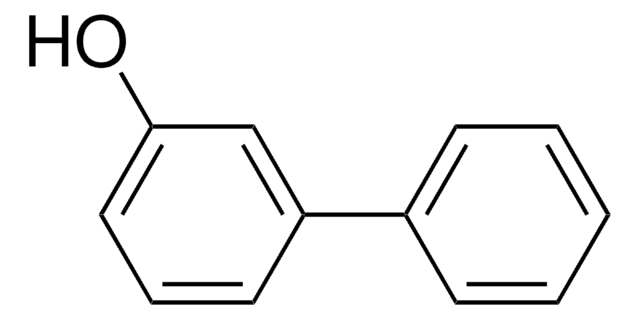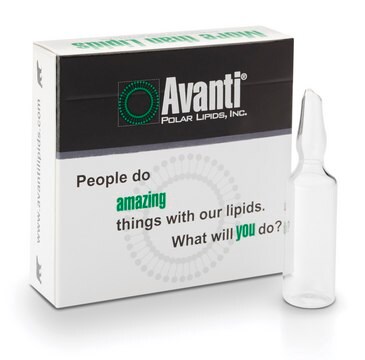890705P
Avanti
16:0-18:1 EPC (Cl Salt)
Avanti Research™ - A Croda Brand 890705P, powder
Synonym(s):
1-palmitoyl-2-oleoyl-sn-glycero-3-ethylphosphocholine (chloride salt)
About This Item
Recommended Products
form
powder
packaging
pkg of 1 × 10 mg (890705P-10mg)
pkg of 1 × 25 mg (890705P-25mg)
manufacturer/tradename
Avanti Research™ - A Croda Brand 890705P
application(s)
advanced drug delivery
lipid type
transfection
cationic lipids
shipped in
dry ice
storage temp.
−20°C
SMILES string
O=P(OCC[N+](C)(C)C)(OC[C@]([H])(OC(CCCCCCC/C=C\CCCCCCCC)=O)COC(CCCCCCCCCCCCCCC)=O)OCC.[Cl-]
General description
Application
- as a cationic lipid to explore the change in organization and dynamics of a membrane-bound fluorescent probe in host membranes of varying charge
- in the preparation of small unilamellar cationic liposomes
- in a novel albumin-associated lipoplex formulation to evaluate the antitumoral efficacy of immuno-gene therapy and “suicide” gene therapy
Biochem/physiol Actions
Packaging
Legal Information
Storage Class Code
11 - Combustible Solids
Choose from one of the most recent versions:
Certificates of Analysis (COA)
Sorry, we don't have COAs for this product available online at this time.
If you need assistance, please contact Customer Support.
Already Own This Product?
Find documentation for the products that you have recently purchased in the Document Library.
Our team of scientists has experience in all areas of research including Life Science, Material Science, Chemical Synthesis, Chromatography, Analytical and many others.
Contact Technical Service








